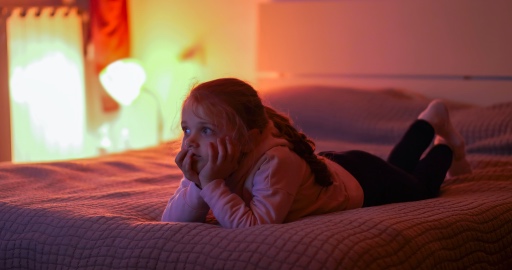4-minute read
Facts on the impacts of COVID-19 on the world of work
Pandemic-related job losses around the world
The 2020 pandemic is destroying livelihoods around the globe.
According to the United Nations Labor Agency some 1.6 billion people employed in the informal economy – or nearly half the global workforce – could see their livelihoods destroyed due to the continued decline in working hours brought on by lockdowns to curb the spread of COVID-19.
Why COVID-19 has impacted employment so much
There’s no single reason why the pandemic has crippled economies. Just like the ferocious impact of the virus itself on the human body, it’s impact has been far reaching and wide ranging.

The bad news story
Dying industries are now dying faster
The pandemic has put more pressures on industries already facing extinction such as retailers with product lines beyond grocery, consumables, past-times and household essentials. The pandemic has accelerated the move to e-commerce and e-retailing. It served to accelerate long-term shifts that were already occurring.
To example this, retail sales in the U.K. declined faster in 2020 than at any time in history, with sales plunging by 1.9%.
The travel and tourism industry has also been hit. The fear of future viruses is making travel stocks hard to predict. Already travel stocks have been hit hard, with Tui down 15% and BA parent IAG losing 3.6%, making it the biggest loser on the FTSE 100 index.
The economic pain of the pandemic falls beyond retail and travel. Pretty much all bricks-and-mortar businesses are suffering. Of course, many manufacturers, that found success in the boom years of consumerism, are now struggling because the world isn’t as plentiful as it used to be and younger generations are changing their buying preferences towards recycle and reuse alternatives; they’re less inclined to keep buying new products every year.
The true impact of COVID-19 means more than 430 million enterprises in hard-hit sectors such as retail and manufacturing risk “serious disruption”, so says the UN Labor Agency.

Consumers have changed their habits and attitudes
Consumers today are ‘nesting’ at home and have been given pause to re-think their values and what’s important to them thanks to COVID-19. Suddenly, we all feel a little less confident in our futures, how much time we have left on the planet. These attitudes and behaviors are being reflected in buying trends: According to the latest research by McKinsey, bricks-and-mortar businesses are suffering the most, gym memberships are down, tourism is staggeringly low, while the play and entertainment is experiencing massive growth, media consumption like online streaming is up (Disney Plus achieved subscriptions in two months what took Netflix 7 years), and health and wellbeing industry is experiencing a ‘renaissance’ moment.
Workers have changed where they work, killing work-day trade
Towns and cities that housed office centres and thousands of workers have grown silent in daylight hours that were previously the sight of bustling streets and overflowing cafes, snack bars and eateries. Remote working has grown the online collaboration industry 20-fold, but that has come at the cost of hundreds of small businesses serving the mass commute audience of yesteryear.
Montreal is an example of the many commuter towns and cities whose lunch and early evening food and beverage economies have been struck down by COVID-19, proving it to be as deadly to small businesses as it is to humans. In January (2021), Timeout reported on the sad demise of 36 notable Montreal restaurants and bars permanently closed due to the pandemic.

Some organizations have demonstrated their inability or unwillingness to adapt to change
Some home electronics, logistics, pharmaceuticals, medical equipment, and cleaning supplies companies—and even Formula One racing teams—have demonstrated their remarkable adaptability by servicing needs created by the pandemic. Other businesses—particularly those traditionally characterized by bricks-and-mortar operations and requiring the footfall of ‘passing trade’—have demonstrated an unwillingness or inability to adapt to the new normal. For example, bars and pubs accustomed to a client base that came to them proved staggeringly poor at offering door-to-door or click-and-collect services.
The perfect excuse to right-size a workforce
A small number of businesses, already suffering to make a profit from their business model before the pandemic hit, took the pandemic as a great ‘once in a lifetime’ opportunity to use it as a credible excuse to downsize their workforce and cut operating costs.

The good news story
There is a silver lining. It’s not all bad news.
New opportunities have been forged
The pandemic has boosted areas of the global economy such as local home delivery logistics, pharmaceuticals industry, and cleaning products, remote working technologies, medicines, health and fitness. Even areas of retail are stronger today than they were yesterday. Many of these changes are likely to be permanent.
Downturns normally lead to a spike in innovation
Just as a dying tree might shed new saplings, history suggests during every slow-down in economic activity, innovation grows, resulting in the formation of new startup ‘buds and shoots’ emerging out from the old.
The pandemic has triggered a surge in business start-ups across major economies. The US, UK, France, Germany and Japan register sharp rises in new company registrations.
- In the US, business formation applications were up 82 per cent in the three months to September compared with the same quarter the previous year.
- In the UK, new business formations in the first nine months of the year were 9.5% higher than the same period in 2019.
- France registered 84,000 new businesses in October, up 20 per cent on the same month last year and the highest ever recorded
- In Germany, business registrations were above last year’s levels in most recent months, after a sharp fall in the early stages of the pandemic.
- In Japan, 10,000 new businesses were registered in September, 14 per cent more than in the same month last year

Future outlook
McKinsey & Co described the consequential impact of COVID-19 on consumer behaviors and workplace trends as being ‘the next normal.’ Who could argue. While the pandemic has chastened industries that were dying anyway to their inevitable destiny, it has accelerated consumerism towards a digital age; an age of machines, an era when humanity has more time on its hands, and will probably live at home more—some would say, right up to the point when the planet dies to extinguish all of humanities hopes and dreams.
Whatever happened before 2020, the global economy has found itself on a new trajectory. Businesses are faced with the black or white option to ‘go where no man has gone before’ or retire early.


Recent Comments